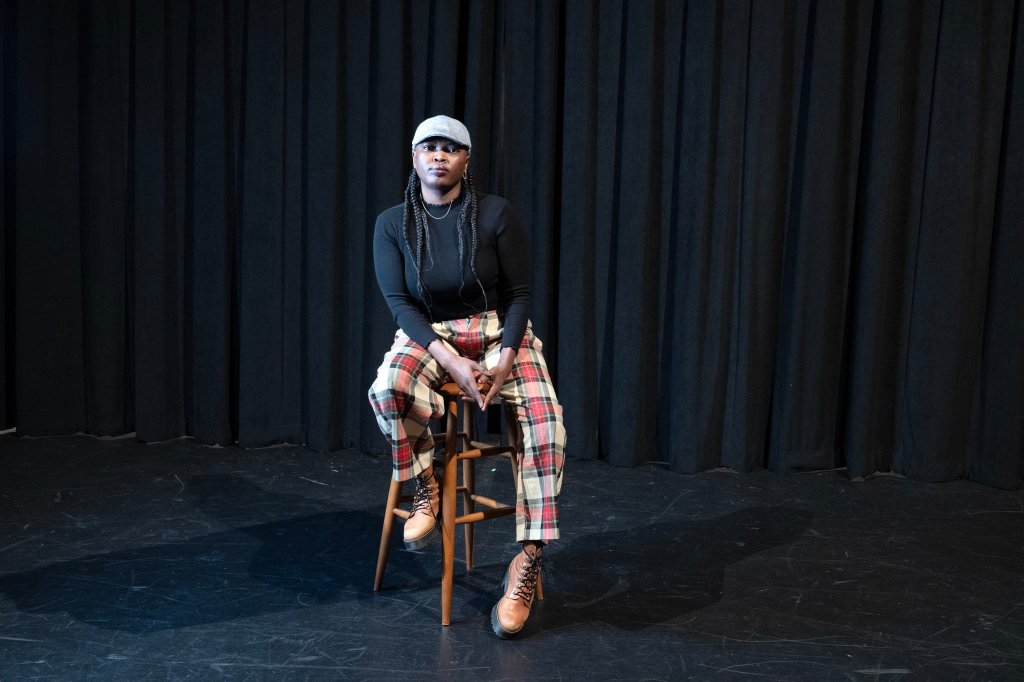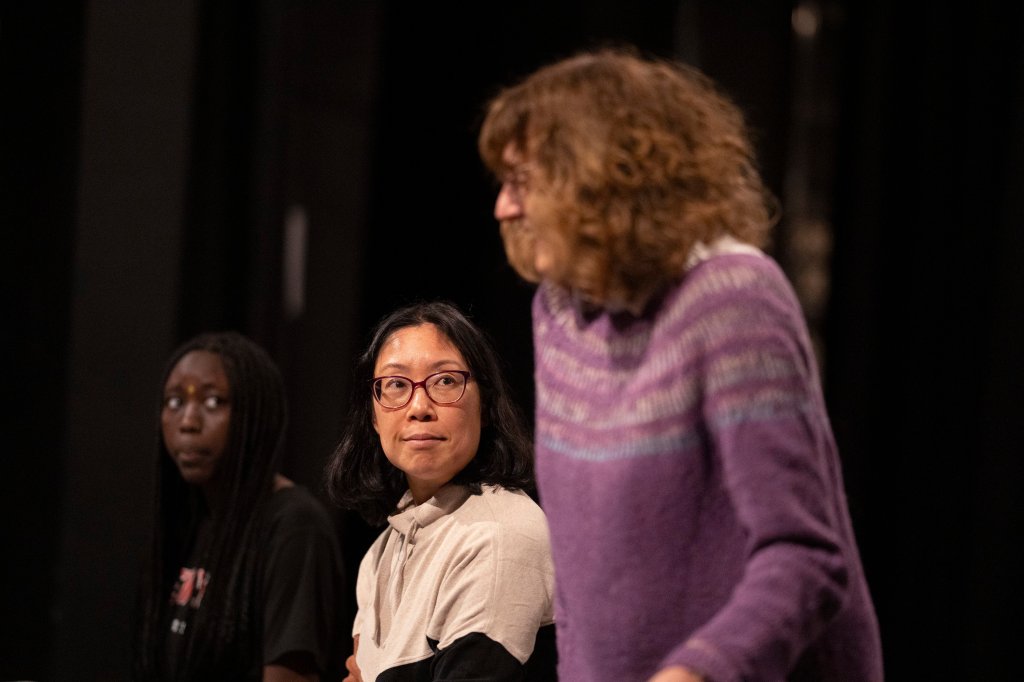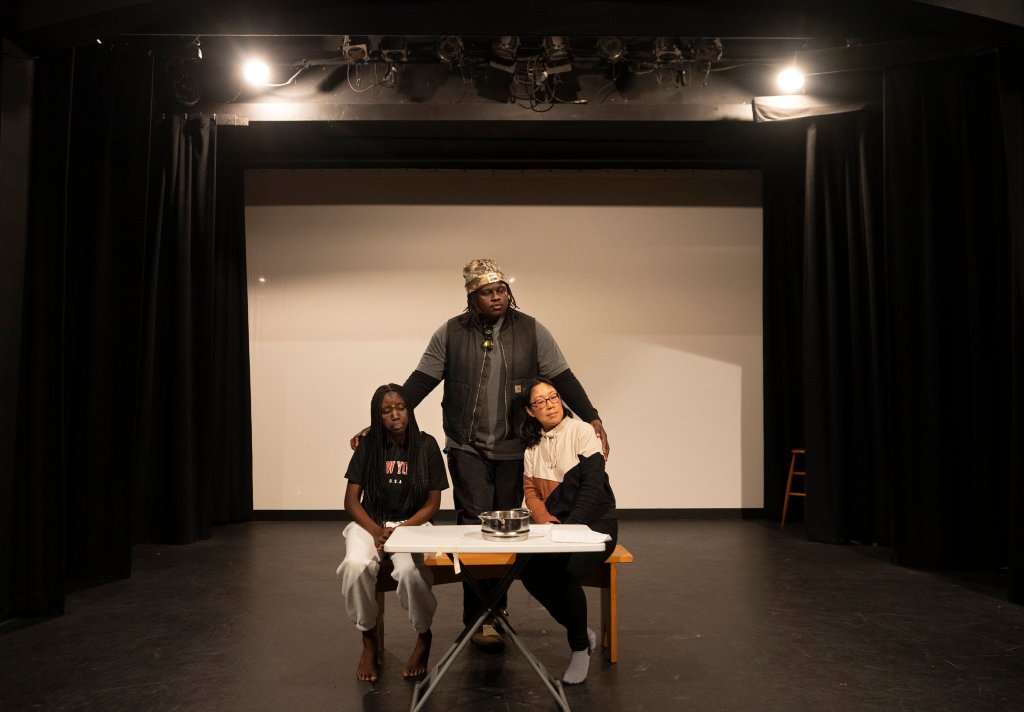
PORTLAND — Nearly 300 years have passed since the Baroque composer George Frideric Handel wrote his famous “The Messiah” in 1741.
But the story feels more relevant than ever to Jack Maeby.
“The beginning of ‘The Messiah’ is really a refugee story,” Maeby said. “It’s a story about this family looking for a place to have this child and to live.”
He wrote a secular reinterpretation of Handel’s composition rooted in gospel music, which debuted in Los Angeles a few years ago. But it wasn’t until Maeby and Carol Tanzman started spending half the year in Portland to be closer to family that they really took the project to the next level. That’s because they met Nyamuon “Moon” Nguany Machar, a spoken word poet who came to Maine when she was 5 years old.
“When Moon came on board with her words, everything just seemed to grow in power,” Maeby said.
“Gospel Messiah: A Refugee Oratorio” will be on stage next weekend at the Hill Arts in Portland. The artists have fully reimagined this biblical classic as a modern immigration story. Machar has added her poetry to the music. Actors, including her brother, who goes by Machar, will portray a refugee family on their journey to Maine.
“It speaks so, so, so deeply to my story and to the story of my family and my community,” Moon Machar said.
‘HOME IN COMMUNITY’
Lately, Machar has been thinking about home.
Her father escaped civil war in what is now known as South Sudan and met her mother while he was a refugee in Ethiopia. Her family used to see the United States as a safe haven, but changes in federal immigration policy have shattered that notion for her and others. Every news story about refugee crises feels personal and unavoidable.
“Where I could find home now, I realized, is in community,” Machar, 35, said. “I have to create home in community.”

She has been feeling helpless, she said, and “Gospel Messiah” has allowed her to act. She said Mainers who are feeling disenfranchised or scared by about the actions of the federal government might relate to this performance more than they realize.
“Rather than to trust countries and organizations, I’ve tried to spark the inner hopes of individuals,” she said. “They have power as well.”
The first version of Maeby’s composition was more abstract in its message, and the performance did not involve actors or poets. But Maeby and Tanzman wanted to be more direct this time.
“It was implicit,” Tanzman, the theatrical director for the performance, said. “This is explicit.”
The Hill Arts supported through grants from the Onion Foundation, Maine Humanities Council and the Nichols Fund.
A JOURNEY IN MUSIC

Handel’s “Messiah” is the story of Jesus and drawn from scripture. Maeby’s interpretation is decidedly secular, but draws from the original in various ways.
“Every piece of music that we’re doing is in some way adapted from a piece of music in Handel’s ‘Messiah,'” he said. “In most cases, it’s the melody, reharmonized in gospel context. In some cases, it’s just the text.”
In one early section, Handel’s version directly quotes from scripture.
“Every valley shall be exalted, and every mountain and hill made low, the crooked straight, and the rough places plain.
“The Messiah” by George Frederic Handel
And the glory of the Lord shall be revealed, and all flesh shall see it together, for the mouth of the Lord hath spoken it.”
In Maeby’s version, the text is not overtly biblical and has a more modern vibe.
“All the mountains and all the hills made low.
“Gospel Messiah: A Refugee Oratorio” conceived by Jack Maeby, Moon Machar and Carol Tanzman
The crooked straight and the rugged places plain.
Every valley (Ooh, every valley)
Every valley will be —
Will be — will be exalted
Will be — will be exalted”
Machar wasn’t familiar with this composition before she started working with Maeby and Tanzman on this project. But she grew up in a Catholic family, so the story at the heart of it felt familiar. She thought about the Stations of the Cross that follow the pivotal moments of Jesus’ path to crucifixion — and the parallels to the refugee experience.
“A lot of the families that are here, including my family, we did have these stations that we went through when we left our country,” Machar said. “So much of the immigrant story is that they came from away, and now they’re here. But there’s so much that happened in the in-between, so much that shapes a family.”
Her own family is present in this project in many ways, including her brother’s role in the production. Earlier this year, she presented a performance of “The Scent of Grief,” a collection of poems in tribute to her late father, Peter Nguany Machar, who died last year and was an important leader in the local South Sudanese community. His memory is alive in this work as well.
“After he passed, I felt like the baton was there,” Machar said. “There’s just so much more of a responsibility with my work and with my art that I have to start taking on.”
Her own journey continues to the stage — and beyond.
IF YOU GO
WHAT: “Gospel Messiah: A Refugee Oratorio”
WHERE: The Hill Arts, 76 Congress St., Portland
WHEN: Nov. 14 to 16
HOURS: Showtimes are 7 p.m. Friday; 2 p.m. and 7 p.m. Saturday; 4 p.m. Sunday. The Saturday evening show will be followed by a talk-back with the performers and creators at 8:30 p.m.
HOW MUCH: $5 to $15
INFO: For more information, visit thehillarts.me or call 207-347-7177.

We invite you to add your comments. We encourage a thoughtful exchange of ideas and information on this website. By joining the conversation, you are agreeing to our commenting policy and terms of use. More information is found on our FAQs. You can modify your screen name here.
Comments are managed by our staff during regular business hours Monday through Friday as well as limited hours on Saturday and Sunday. Comments held for moderation outside of those hours may take longer to approve.
Join the Conversation
Please sign into your CentralMaine.com account to participate in conversations below. If you do not have an account, you can register or subscribe. Questions? Please see our FAQs.